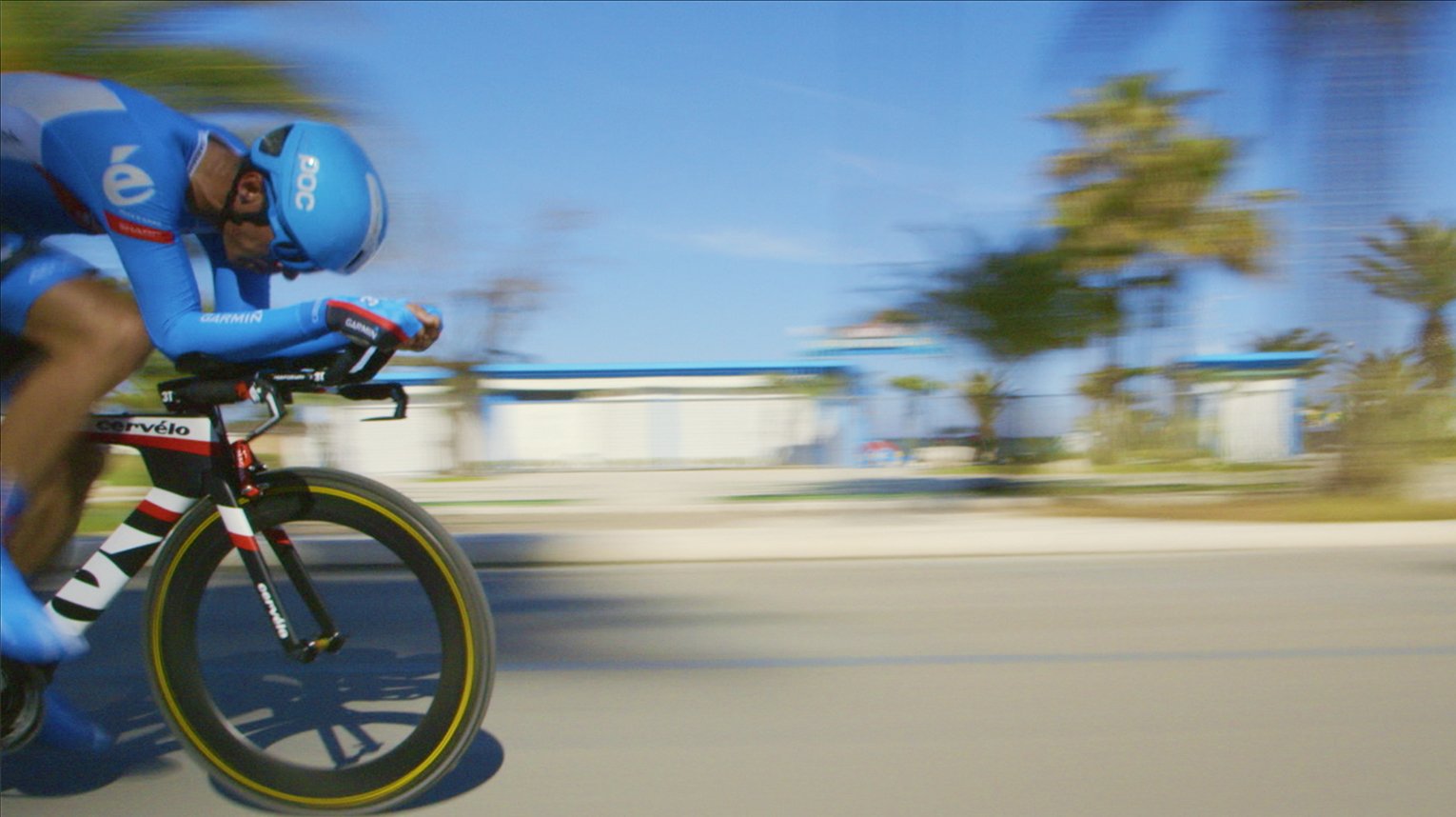Finlay Pretsell's documentary Time Trial represented a stepping stone or pivot in the life of its subject, the pro cyclist David Millar: it marked the end of a long and distinguished if ultimately tarnished Grand Tour career, and the beginning of Millar's subsequent career as one of our most insightful TV analysts. We get the backstory early on, but are then thrown into the very middle of a comeback. (Millar was banned for doping offences in 2004; having served out the ban, he signed for the Garmin-Slipstream team in 2007. Pretsell joined him in early 2014, when this now road-weary 37-year-old was giving one more push to make the hallowed Tour de France.) Non-cycling folks will need to know going in that Millar was in some ways a special case. Unlike the bullishly unapologetic Lance Armstrong, he put his hands up when caught, accepted his punishment and served his ban with humility; after becoming a vocal anti-doping activist - someone whose words on the matter carried an extra weight, possibly inextricable from personal regret at the victories he cast into doubt, and the years lost to the sin bin - he assisted the sport in its late Noughties clean-up efforts, and eventually returned to the saddle to demonstrate it was still possible for him and others like him to ride (and win) clean. A more conventional film might have made that the story: the old warrior takes to the road one last time in search of redemption. Pretsell, however, recruited Millar almost as a Trojan horse, a means of getting the viewer inside these big races: he mikes the cyclist up, straps a GoPro to his handlebars, and in doing so, arrives at an artefact that is at least as revelatory as that Dispatches documentary about Graham Taylor when he was England manager. Time Trial gets us inside the peloton, which proves to be far noisier than you might intuit from the TV coverage, all grumbling, mumbling and plotting, a grudge on wheels. It gets us inside the Garmin team cars, home to some distinctly choice language. (The film earned a surprise 18 rating on its theatrical release for that very reason.) And it gets us inside David Millar's head, as he tries to process his trajectory and make peace with everything he's seen and done over the preceding decade-and-a-half.
Rather than giving us the helicopter overview familiar from TV cycling coverage, the film gets us in close, in other words. Close enough to watch the riders swapping lunch items, or making small talk like bored office workers (Millar enjoys a cherishably low-NRG bond with fellow veteran Dan Martin); close enough to follow its subject on domestique duties, winding his way through the field to hand out waterbottles to teammates, only to realise he's forgotten to pick one up for himself. There's an especially heartbreaking setpiece, on a real grizzly, drizzly day, which involves no more than Millar struggling to put his gloves and jacket on mid-race: the loneliness of the long-distance stage rider has never been more apparent. These aren't the only setbacks this aging warhorse faces. As a cyclist, Millar is - by his own admission - almost as shot as any other 37-year-old going uphill on a Grand Tour ("I'm not good enough... fuck"). Yet he was also shrewd enough to sense that, and to take on a new role as a domestique for the filmmaker, carrying footage from the front (and back) of the field as he did those waterbottles, and thereby showing Pretsell - and the rest of us - how a bike race works, sounds and looks, on good days and bad. Instead of those soaring, stirring heli shots, then, we get something more antsy, immersive, impressionistic; if we lose the sense of where we are, who's winning and what anybody else is racing for, we gain a potent idea of what it is to ride - the routine, the fatigue, the nerves. That's valuable, if not always necessarily dramatic. And so the end of one thing - Millar's last laps around the circuit, a final measure of closure - becomes the start of another: the process whereby a sportsman-turned-commentator comes to convey something truthful about their sport, thereby adding to the sum total of human knowledge. In the final moments, we see Millar in motion on the dancefloor, and note that Pretsell may be the first sports documentarist to have taken a cue or two from the Claire Denis of Beau Travail. His subject, meanwhile, appears similarly liberated: no longer bound by team orders or sodden wet weather gear, free to move and express himself as he likes.
Time Trial is now available to stream on the BBC iPlayer.

A very different doco. Quite arty style following David Millars come back to pro cycling. Doesn't go down the usual route of using talking heads with lots of dialogue. It's mostly shot like a fly on the wall (or dashboard/bike) documentary with some voice overs by David Millar himself. I saw this at the cinema & it really worked on the big screen for me, may be better seen this way if you can. You get a real sense of the speed & drama of the peloton etc. The microphones pick up some great conversations between the riders & the language gets quite colourful, giving the film it's comedic moments
ReplyDelete